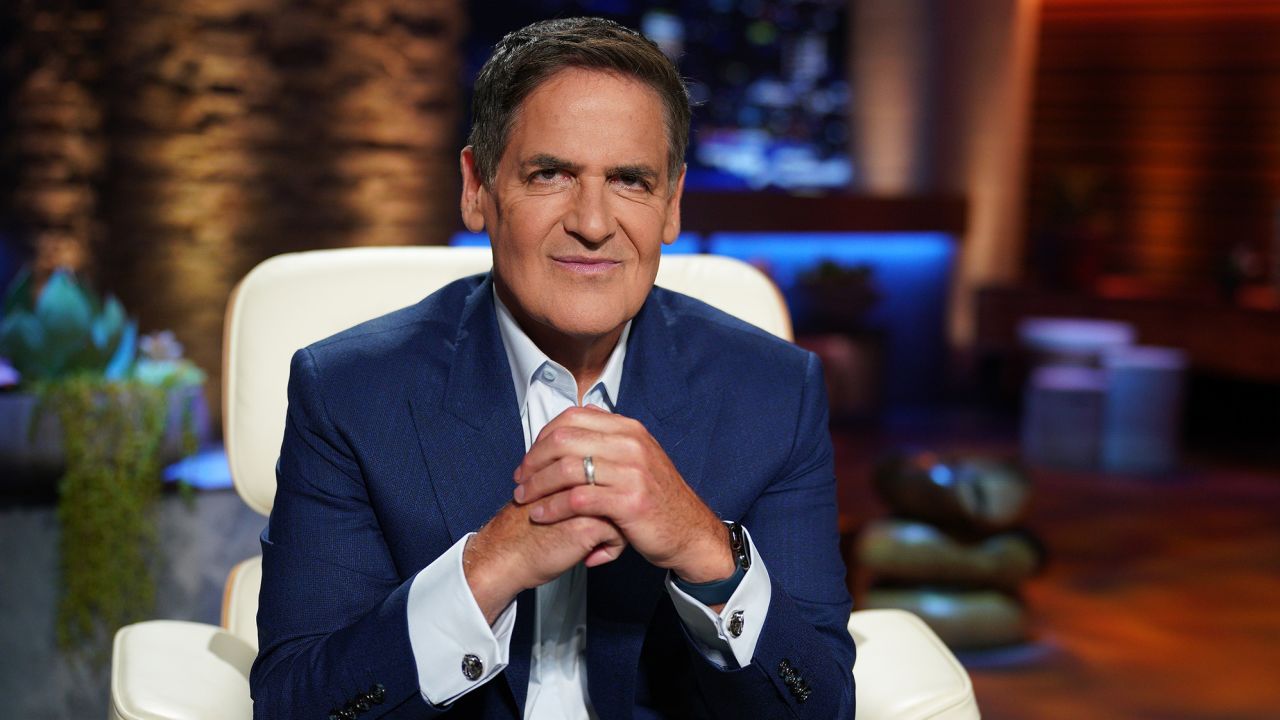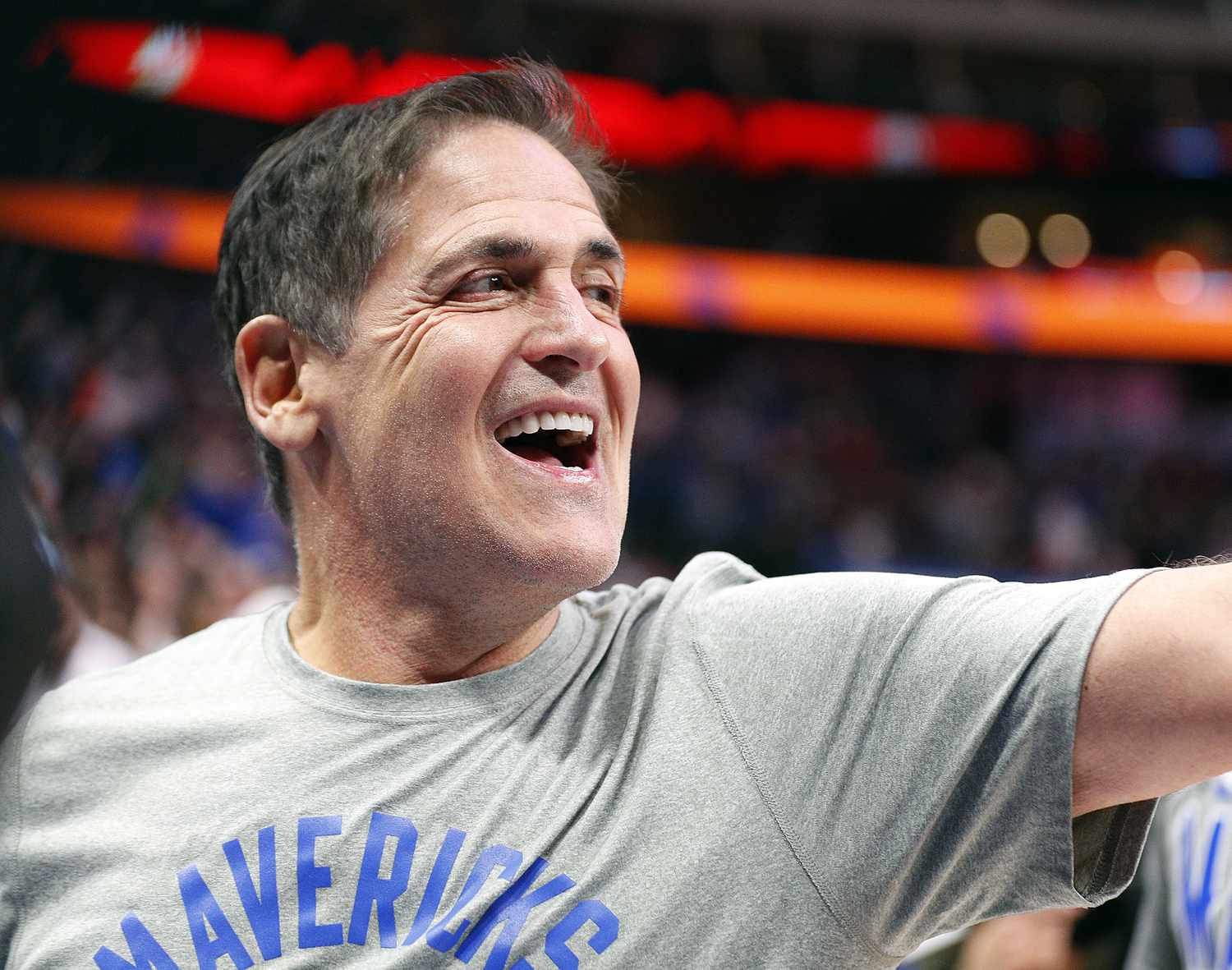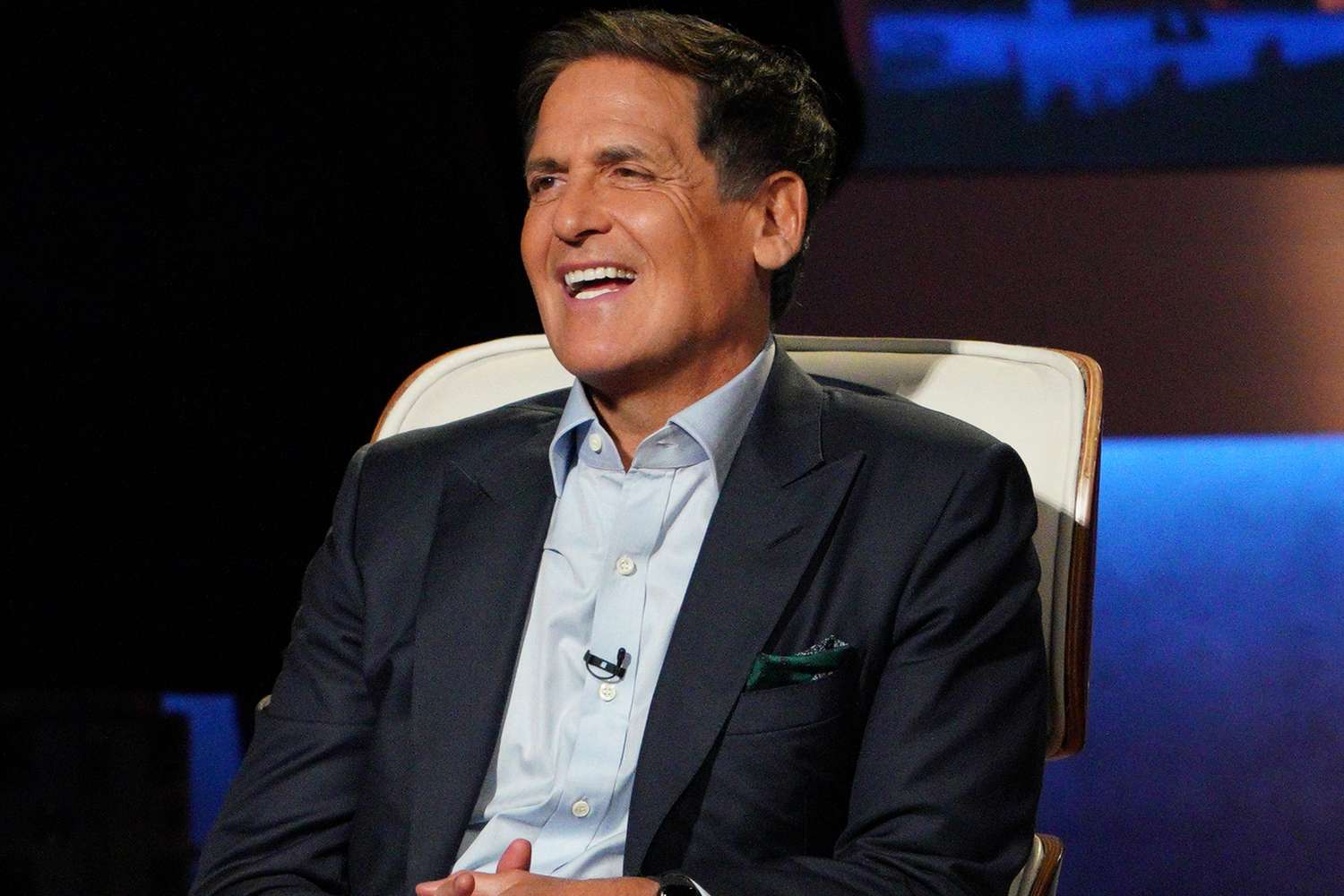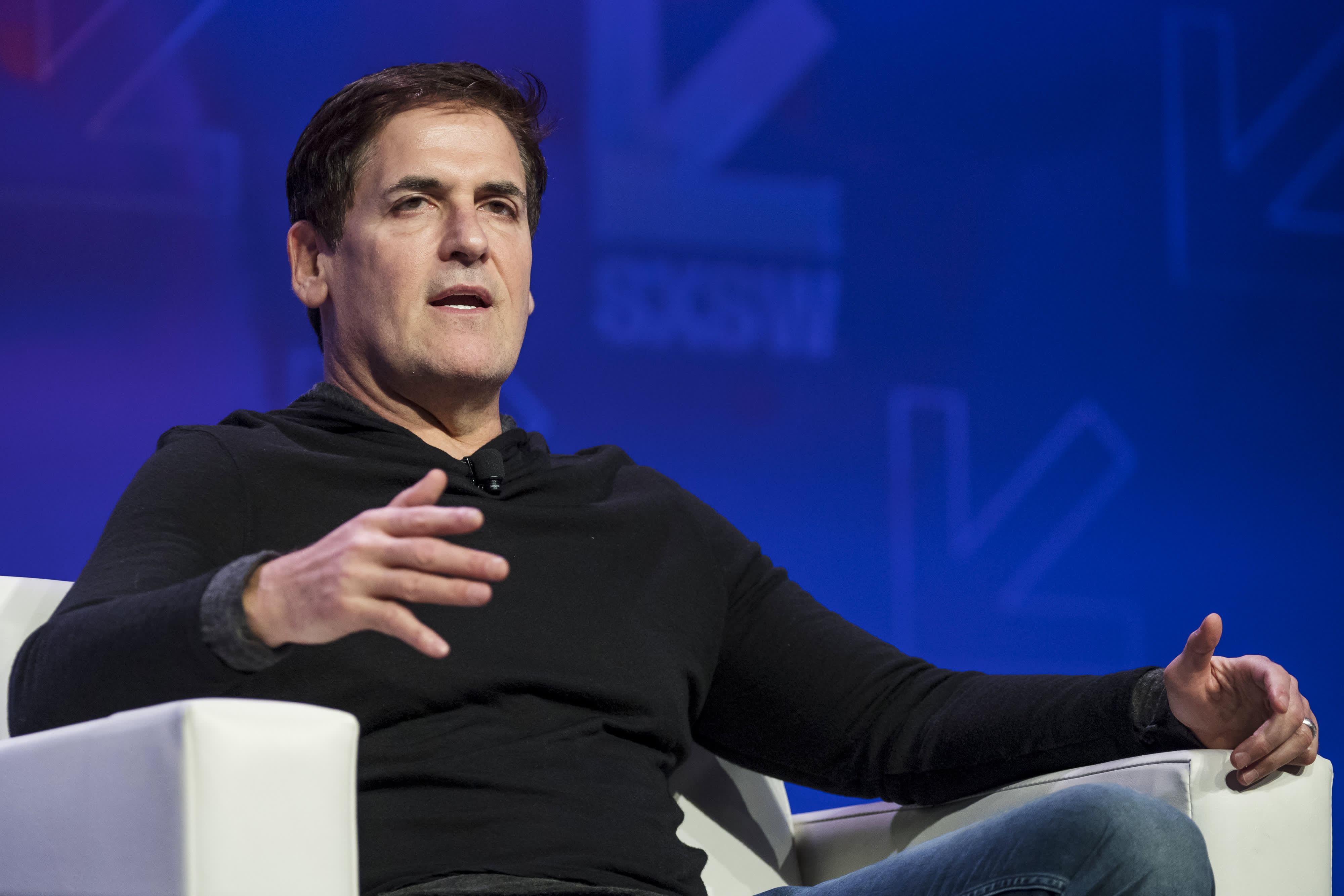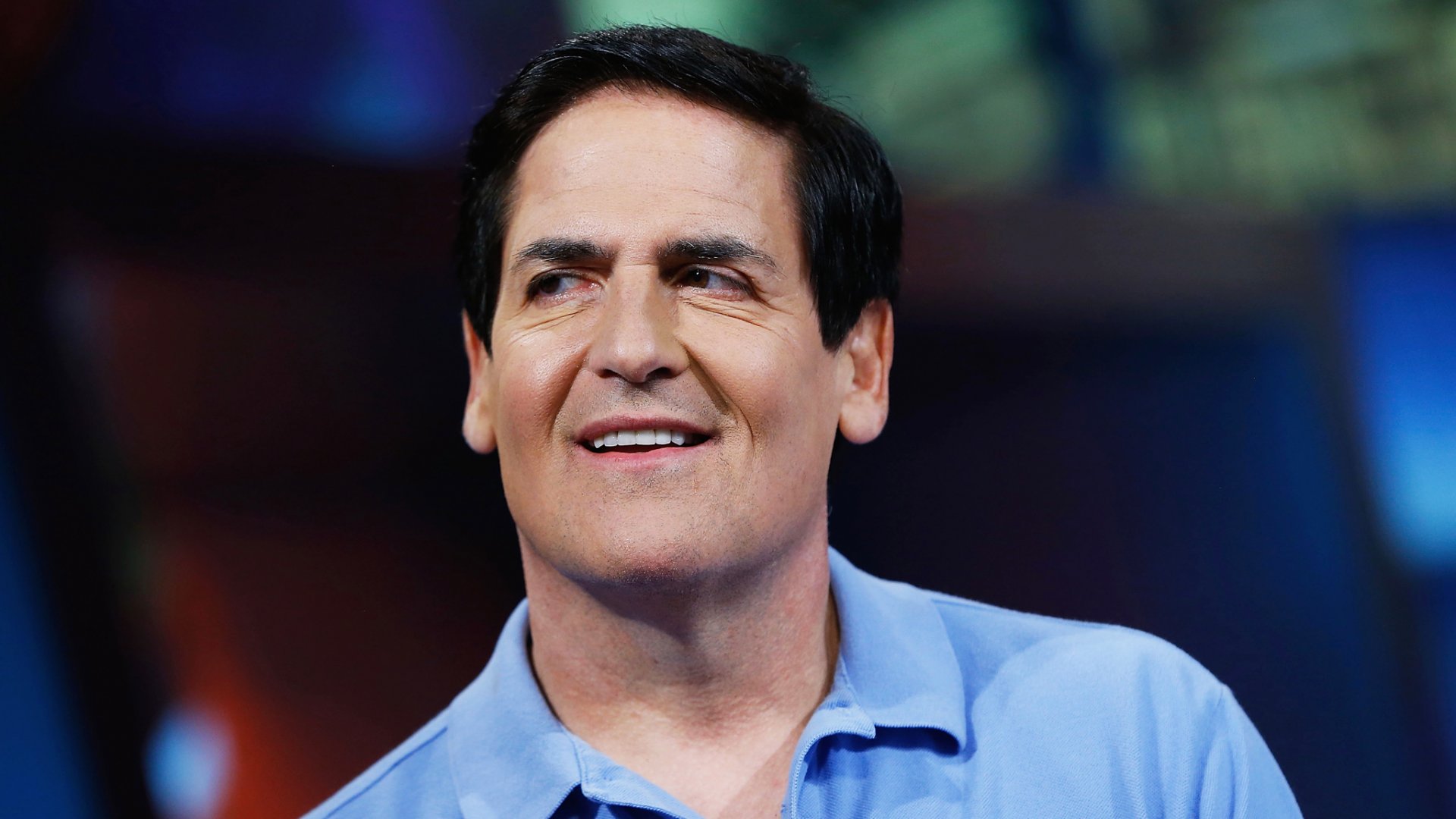How Did Mark Cuban Become A Billionaire?
Explore the dynamic journey of entrepreneur and investor Mark Cuban - from dot-com success and Mavericks ownership to "Shark Tank" insights. Discover the keys to his business brilliance and philanthropic impact.
Author:Elisa MuellerReviewer:Emily SanchezJan 23, 20243.8K Shares181.9K Views
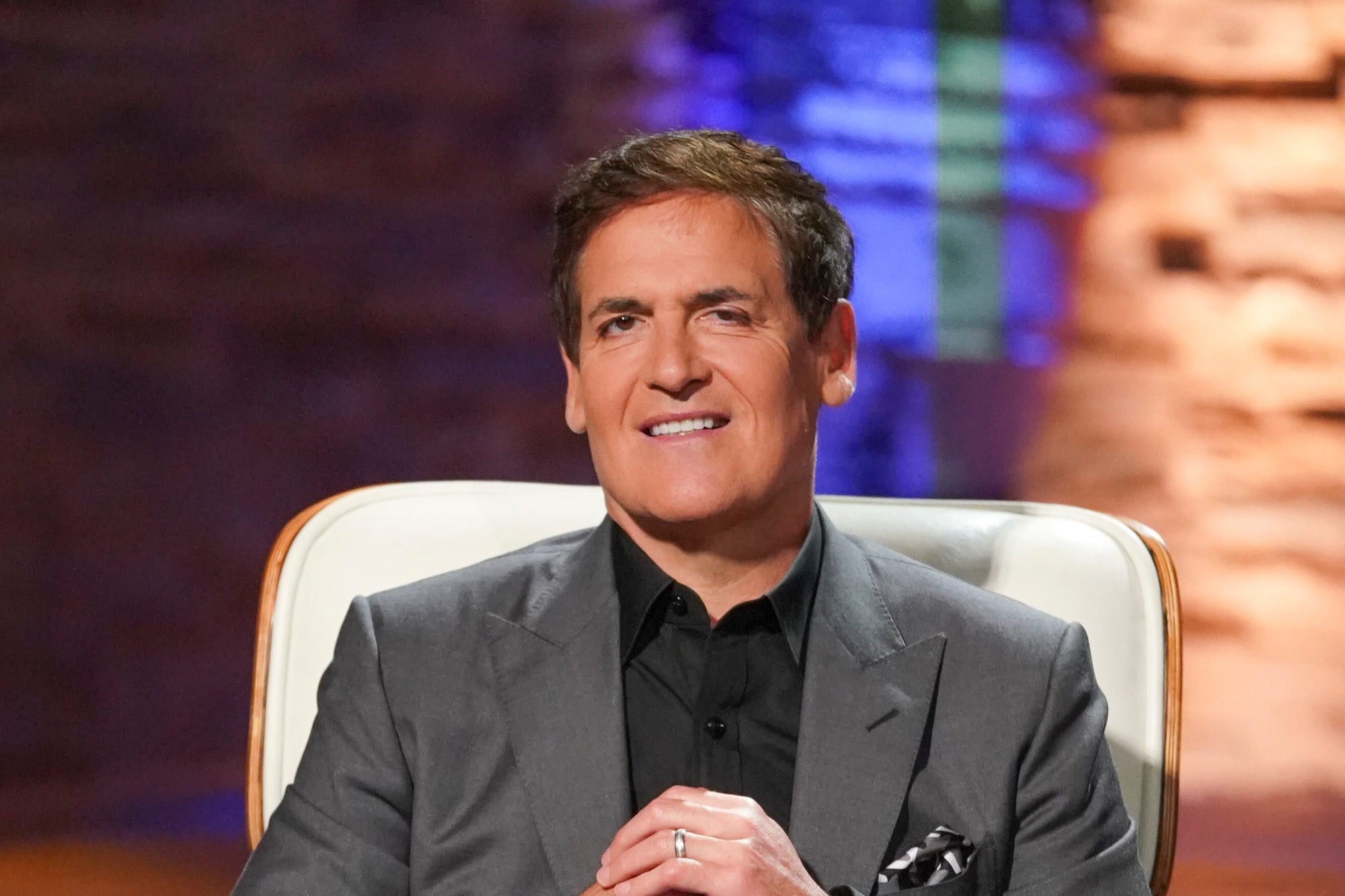
Mark Cuban, a name synonymous with entrepreneurial prowess and financial acumen, stands as a beacon of innovation and business brilliance in the contemporary landscape. From his early ventures in technology to becoming the outspoken owner of the Dallas Mavericks and a formidable investor on "Shark Tank," Cuban has etched his mark across diverse industries.
This article delves into the life and career of Mark Cuban, unraveling the layers of his success, vision, and indomitable spirit that have propelled him to the forefront of the business world.
Quick Facts About Mark Cuban
| Name | Mark Cuban |
| Birthday | July 31, 1958 |
| Profession | Entrepreneur |
| Net worth | $6.2 billion |
Early Life Of Mark Cuban
Mark Cuban's journey began on July 31, 1958, in Pittsburgh, Pennsylvania, where he experienced a quintessential middle-class upbringing. Born into a family where hard work was a virtue, his father, Norton, dedicated almost fifty years to a car upholstery shop, while his grandfather, Morris Chobanisky, a Russian immigrant, supported his family by selling goods from the back of a truck.
Inheriting a spirit of tenacity from his grandfather, Cuban exhibited a natural aptitude for striking deals and forging a path to a brighter future. At the young age of 12, he embarked on his entrepreneurial journey, selling sets of garbage bags to save money for a pair of coveted shoes. Even in high school, Cuban was on the hustle, earning extra income as stamp and coin salesmen.
Cuban's determination extended beyond business ventures into his academic pursuits. Displaying a keen interest in psychology, he began taking classes at the University of Pittsburgh during his junior year of high school. Skipping his senior year, he committed to full-time enrollment at the college.
Upon completing his freshman year at Pitt, Cuban made a strategic move, transferring to Indiana University. His understanding of economic principles wasn't confined to textbooks. Faced with the financial challenge of self-funded education, he ventured into teaching dance lessons to make ends meet.
Business Ventures Of Mark Cuban
Starting as a bartender and salesperson for Your Business Software, a pioneering PC software retailer in Dallas, Cuban faced an unexpected setback less than a year later. His unyielding pursuit of new business, rather than store operations, led to his termination.
MicroSolutions
Undeterred, Cuban's resilience shone through in the birth of MicroSolutions, a venture fueled by support from his previous clients at Your Business Software. Originally conceived as a software reseller and system integrator, MicroSolutions thrived under Cuban's leadership, securing major clients such as Perot Systems.
By strategically growing the company, he transformed it into a revenue-generating powerhouse, eventually selling MicroSolutions to Compuserve in 1990 for a remarkable $6 million, leaving him with a net gain of about $2 million after taxes.
American Airlines Unlimited Pass
Mark Cuban's flair for seizing unique opportunities manifested in an extraordinary purchase following the MicroSolutions windfall. On the night of the deal's closure, he and his co-founders indulged in a celebratory steakhouse gathering. When questioned about his plans for newfound wealth, Cuban, with characteristic boldness, dialed American Airlines from the table's phone and secured an unlimited lifetime pass for $250,000, along with a companion pass for $150,000.
This shrewd move allowed him to fly worldwide at a moment's notice for free, a privilege he maintained even after American Airlines discontinued the offer in 1994. While he ultimately gifted the pass to his father, who later passed it on to a friend after his demise, the American Airlines Unlimited Pass became a symbol of Cuban's audacious approach to life.
Broadcast.com
In 1995, Cuban, alongside Chris Jaeb and Todd Wagner, embarked on a venture named Audionet, uniting their shared passion for Indiana Hoosier basketball and webcasting. Evolving into Broadcast.com in 1998, the company, equipped with just one server and an ISDN line, skyrocketed to success.
By 1999, it boasted 330 employees and $13.5 million in revenue, making waves with the live-streamed Victoria's Secret Fashion Show. The pinnacle of Broadcast.com's journey came in 1999 when Yahoo! acquired the company for a staggering $5.7 billion in Yahoo! stock, solidifying Mark Cuban's status as a tech visionary and savvy entrepreneur.
Dotcom Bubble Burst
Mark Cuban's strategic prowess reached its zenith with a prescient move that set him apart during the dotcom era. As the Broadcast.com deal concluded, Yahoo's stock soared to $163 per share. A mere six months later, when Cuban's lockup agreement concluded, the stock value remained largely unchanged.
What unfolded next showcased Cuban's acumen. Despite the stock's apparent stability, he harbored a conviction that the burgeoning internet bubble was on the verge of collapse. Seizing the moment, Cuban astutely divested himself of 100% of his Yahoo shares as soon as his lockup agreement allowed. This bold maneuver wasn't merely an exercise in timing; it was a calculated anticipation of the impending burst.
The result was staggering - a monumental cash influx of $2.5 billion. While many investors clung to the optimism surrounding the dotcom craze, Cuban's foresight shielded him from the devastating aftermath that awaited those less vigilant.
In the subsequent year and a half, as the dotcom bubble reached its zenith before the inevitable crash, Yahoo's stock embarked on a precipitous decline. Plummeting from $100 to $70, then $50, and eventually bottoming out at $30, the once-mighty internet giant found itself in a freefall. By October 2001, Yahoo hit an unprecedented all-time low at $8.11 per share - a staggering 95% plunge from the $163 per share value when Cuban made his strategic exit.
The implications of Cuban's calculated decision became glaringly evident. Had he clung to his Yahoo shares, his $2.5 billion worth of stock could have dwindled to a mere $125 million. While still a substantial sum, it paled in comparison to the financial arsenal that eventually enabled Cuban to realize his dreams - from owning an NBA team to acquiring a movie studio, cable network, and private jets.
Purchasing NBA Dallas Mavericks
In the year 2000, Mark Cuban thrust himself into the limelight of the NBA community with the audacious purchase of the Dallas Mavericks for a substantial $285 million, acquiring the team from Ross Perot Jr. For Cuban, a devoted longtime season ticket holder, this venture was the realization of a cherished dream to immerse himself in the realm of professional sports. However, the Mavericks he inherited were far from the illustrious franchise they would become under his ownership.
Upon taking the reins, Cuban faced a team burdened by a history of poor personnel decisions, mediocre players, and lackluster coaching. Undeterred, he saw an opportunity to transform the struggling franchise into a powerhouse.
Armed with his trademark enthusiasm and unyielding determination, Cuban initiated a comprehensive overhaul, not only reshaping the team's culture but also revamping its roster. Under his visionary leadership, the Mavericks underwent a dramatic facelift, with a new stadium symbolizing the dawn of a new era.
Cuban's approach extended beyond the boardroom, as he immersed himself in the fan experience. Opting to sit among the crowd, he became the team's most vocal supporter, passionately rallying against opponents and occasionally challenging referees. This hands-on approach resonated with the Mavericks, and the team responded positively to the infectious zeal brought by their new owner.
The impact of Cuban's ownership became tangible in 2001 when the Mavericks qualified for the playoffs, breaking a decade-long drought of non-playoff seasons. The subsequent year marked a milestone as the team set a franchise record with 57 wins.
The pinnacle of their journey came in 2006 when the Mavericks reached the NBA Finals, narrowly falling short against the Miami Heat. Undeterred, Cuban's perseverance paid off in 2011 when the Mavericks clinched the NBA title, defeating the Miami Heat in a triumphant victory.
Beyond the court, Mark Cuban injected a touch of innovation into team ownership. Pioneering a trend, he became the first NBA owner to launch his blog, a dynamic amalgamation of tech insights and candid reflections on NBA basketball. The blog swiftly gained popularity, receiving thousands of emails daily from captivated readers eager to delve into the mind of the Mavericks' passionate owner.
Shark Tank, Cost Plus Drugs, Amazon Stake
Shark Tank
Mark Cuban has become a household name as one of the main hosts of "Shark Tank" since season two, bringing his unmatched business acumen to the forefront of prime-time television. His impact on the show has been nothing short of transformative, with the top three deals he facilitated showcasing his commitment to bold investments, each exceeding a staggering $1 million.
Notable among these triumphs are deals with Ten Thirty-One Productions, Rugged Maniac Obstacle Race, and BeatBox Beverages. Since Cuban arrived in 2011, the show's ratings have soared, a testament to his ability to captivate audiences and enhance the overall appeal of the entrepreneurial reality series.
The success of "Shark Tank" under Cuban's tenure extends beyond the screen, as the show has earned three prestigious Primetime Emmy Awards for Outstanding Structured Reality Program. His dynamic presence and keen business insights have undeniably played a pivotal role in the show's continued acclaim and popularity.
Cost Plus Drugs
In 2022, Mark Cuban initiated a transformative venture with the establishment of the Cost Plus Drugs Company. This visionary endeavor was fueled by a mission to combat the exorbitant prices of prescription drugs in the United States.
Beyond mere cost reduction, Cuban aimed to usher in a new era of transparency in the drug pricing landscape. By challenging the status quo, he demonstrated a commitment to not only identifying problems but actively contributing to solutions that address the pressing issue of accessibility and affordability in healthcare.
Amazon Stake
Mark Cuban's financial portfolio is a testament to his strategic investment prowess, with his September 2019 revelation making waves in the financial world. Holding nearly $1 billion worth of Amazon stock, it stands as his most substantial stock holding, underscoring his keen eye for lucrative opportunities in the market.
Notably, Netflix ranks as his second-largest stock holding, showcasing a diversified investment strategy that aligns with the ever-evolving landscape of the tech and entertainment industries. Cuban's ability to navigate and capitalize on these market dynamics solidifies his status not just as a successful entrepreneur but as a shrewd and forward-thinking investor.
Mark Cuban's Net Worth
Mark Cuban, a titan in the realm of American entrepreneurship, boasts an impressive net worthof $6.2 billion, a testament to his unparalleled success and strategic business prowess. This exceptional financial journey commenced with his early triumphs, notably the founding of MicroSolutions, where he earned his initial fortune. However, it was the sale of Broadcast.com to Yahoo in 1999, amidst the zenith of the dot-com bubble, that catapulted Cuban into the echelons of billionaires.
Armed with his multibillion-dollar windfall, Mark embarked on an impressive acquisition spree, notably purchasing the Dallas Mavericks, Magnolia Pictures, and Landmark Theaters. His financial endeavors extend to his role as chairman of HDNet, an HDTV Cable Network, and his co-ownership of 2929 Entertainment.
Beyond his entrepreneurial ventures, Mark Cuban has become a household name as one of the longstanding hosts of CNBC's reality business program, "Shark Tank." Taking the helm in 2011, Cuban's dynamic presence contributed significantly to the show's success. In November 2023, he announced his decision to step down after one more season of the show, marking the end of an era for one of the most recognizable faces in the business reality television landscape.
Real Estate Properties Of Mark Cuban
Mark Cuban, the epitome of entrepreneurial success, doesn't just conquer the business world; he also commands an impressive real estate portfolio that exudes opulence and luxury. At the heart of his residential empire is a sprawling 24,000-square-foot mansion in Dallas, where he and his family reside, creating a haven that mirrors the scale of his accomplishments.
However, this lavish lifestyle extends beyond the Lone Star State. In a testament to his penchant for acquiring prime properties, Cuban made headlines in December 2018 with the acquisition of a beachfront California mansion. Located in the prestigious Montage Residences community in Laguna Beach, this $19 million investment marked the highest-priced sale in the area that year.
The coastal gem spans an expansive 7,867 square feet, featuring six bedrooms and seven and three-quarters bathrooms, each meticulously designed for comfort and sophistication. The property is a masterpiece of architectural elegance, boasting a refreshing pool and walls of windows that seamlessly open to embrace the outdoor space. From every corner of the residence, panoramic views of the beach and the vast expanse of the ocean create an unparalleled sense of tranquility and luxury.
Philanthropic Efforts Of Mark Cuban
Mark Cuban, renowned for his entrepreneurial prowess and strategic investments, is equally committed to making a positive impact through his philanthropic endeavors. While his financial achievements are well-documented, Cuban's dedication to giving back to society further cements his legacy as a socially conscious business magnate.
One notable aspect of Cuban's philanthropy is his involvement in disaster relief efforts. In times of crisis, he has consistently stepped up to offer support and resources to affected communities. Whether it's providing aid after natural disasters or contributing to relief organizations, Cuban's philanthropic initiatives showcase a commitment to alleviating suffering and aiding in recovery.
In 2003, he established the Fallen Patriot Fund, a testament to his dedication to supporting families of U.S. military personnel affected by the Iraq War. His commitment was evident as he matched the first $1 million in contributions from the Mark Cuban Foundation.
In a nod to his alma mater, Indiana University at Bloomington, Cuban made a substantial impact in June 2015 with a $5 million donation. The funds were designated for the "Mark Cuban Center for Sports Media and Technology," set to be housed within Assembly Hall, the iconic basketball arena of the university.
Mark Cuban's compassion shone even brighter during the COVID-19 pandemic. Leveraging his platform on LinkedIn, he offered valuable advice and assistance to struggling small businesses navigating the challenges of lockdowns. In a poignant act of kindness, Cuban extended a helping hand to former NBA player Delonte West, providing a hotel room and funding his drug treatment program, embodying a commitment to uplifting others during challenging times.
Moreover, Cuban's philanthropic spirit extends to various causes, including initiatives related to veterans' welfare, cancer research, and support for underprivileged communities. His charitable contributions go beyond financial support, often involving active engagement and leveraging his influence to raise awareness for important social issues.
Notably, Cuban's philanthropic efforts align with his belief in transparency and accountability. By addressing societal challenges head-on and actively participating in solutions, he exemplifies a hands-on approach to making a difference.
Mark Cuban Controversies
In a bold and controversial move, Cuban once referred to Kobe Bryant's 2003 sexual assault case as "great for the NBA," deeming it akin to reality television, a sentiment that stirred both support and criticism. Such candid remarks showcase Cuban's penchant for unfiltered commentary, often straying from the more reserved tones within the NBA ownership circle.
In a memorable clash, Cuban directed scathing remarks at the league's former director of officiating, Ed Rush, stating, "I might have been a great ref, but I wouldn't hire him to manage a Dairy Queen."This led to Cuban humbly serving a day at a Dairy Queen in Coppell, Texas, as a consequence of his outspoken remarks.
The billionaire entrepreneur faced legal turmoil in 2004 when the Security and Exchange Commission (SEC) charged him with insider trading related to an Internet search engine website. Cuban vehemently claimed innocence, and after a rollercoaster legal battle, the case was eventually dismissed in 2009, only to be reinstated in 2010. In a trial that unfolded in October 2013, Cuban was finally cleared of all charges by a Texas jury.
In 2014, Cuban found himself in hot water once again when he made comments perceived as racist, stating he would cross the street upon seeing a Black kid in a hoodie. Despite expressing remorse and apologizing to Trayvon Martin's family, Cuban's remarks stirred a wave of public scrutiny.
The controversy continued in 2018 when Cuban openly admitted to telling his struggling Mavericks team that "losing is our best option" to secure a top pick in the NBA Draft. This candid admission resulted in a substantial $600,000 fine from the league, emphasizing the repercussions of his unfiltered remarks.
Amidst these controversies, Cuban faced additional challenges as a Sports Illustrated report uncovered instances of sexual harassment and misconduct within the Mavericks' front office. An internal investigation was launched, and the NBA reviewed an alleged incident of sexual assault involving Cuban from 2011, although prosecutors had declined to press charges at that time.
Personal Life Of Mark Cuban
The Cuban family's narrative transformed when Mark's paternal grandfather altered their last name from Chabenisky to Cuban upon immigrating from Russia through Ellis Island. This symbolic shift encapsulates the immigrant experience and the pursuit of a new identity in the land of opportunities.
In September 2002, Cuban embarked on a new chapter, exchanging vows with Tiffany Stewartin an intimate ceremony in Barbados. The couple resides in the affluent Preston Hollow area of Dallas, where they've built a home and a family. Their union has been blessed with two daughters, born in 2003 and 2006, and a son, welcomed into the world in 2010, creating a foundation of love and support in the Cuban household.
The entrepreneur's foray into the streaming world marked another milestone. Fireside, Cuban's streaming platform, garnered attention with a $25 million Series A at a valuation of $138 million in April 2023, affirming his continued pursuit of innovation and investment in emerging technologies.
Facts You Probably Didn't Know About Mark Cuban
- In a bold move, Cuban offered Donald Trump$10 million for a four-hour interview. The catch? The conversation would solely focus on Trump's policy proposals, with only a broadcast technician present.
- Before becoming the owner of the Dallas Mavericks, Cuban was a fervent season ticket holder, showcasing his genuine passion for the team before taking the helm.
- To fund his college education, Cuban sold his stamp collection, a testament to his resourcefulness and determination from a young age.
- At the tender age of 12, Cuban demonstrated his entrepreneurial flair by selling garbage bags door to door, all in pursuit of a pair of coveted basketball shoes.
- After dropping out of high school, Cuban accelerated his academic path by taking the GED early. He was accepted at the University of Pittsburgh but later transferred to Indiana University for its affordability among the top ten business schools.
- While studying at Indiana University, Cuban owned and operated Motley's Pub, a renowned dance venue known for its lively atmosphere. His inventive drink concoctions and unconventional promotions, like wet T-shirt contests, contributed to its popularity.
- After selling Broadcast.com to Yahoo!, Cuban made history by purchasing a $40 million private jet over the internet, marking the largest single online transaction, as recorded by the Guinness Book of World Records.
- In 2010, Cuban ventured into the sports realm beyond basketball, attempting to buy the Texas Rangers for a staggering $600 million.
- Known for his outspoken nature, Cuban has incurred nearly $2 million in fines from the NBA for various offenses. He also holds significant stock in Lions Gate Entertainment with Broadcast.com partner Todd Wagner.
- In college, Cuban earned money by teaching dance lessons, showcasing his diverse skill set beyond the business world.
- In 2011, Cuban indulged in luxury by purchasing a 288-foot yacht featuring a basketball court at the stern, exemplifying his extravagant taste.
- Since 2000, Mark Cuban has consistently graced the Forbes 400 Richest Americans list, with an estimated net worth ranging from $1.3 to $1.9 billion, underlining his enduring financial success.
Frequently Asked Questions
What Was Mark Cuban's First Business?
Mark Cuban's first successful business venture was MicroSolutions, a software reselling and systems integration company.
How Much Did Mark Cuban Pay For The Dallas Mavericks?
In the year 2000, Mark Cuban purchased the Dallas Mavericks for $285 million from Ross Perot Jr.
Is Mark Cuban Self-made?
Yes, Mark Cuban is a self-made billionaire. He accumulated his wealth through entrepreneurial ventures and strategic investments.
What Is Mark Cuban's Role On Shark Tank?
Mark Cuban has been one of the main hosts on Shark Tank since season two, contributing his business insights and making significant investments in various entrepreneurial pitches.
How Did Mark Cuban Make His Fortune?
Mark Cuban made his fortune primarily through the sale of his company, Broadcast.com, to Yahoo! during the dot-com boom. He continued to amass wealth through successful investments and business ventures.
Conclusion - Mark Cuban
In the ever-evolving realm of entrepreneurship and investment, Mark Cuban's story serves as a source of inspiration and a roadmap for those daring to dream big. His ability to navigate the turbulent waters of the dot-com era, transform a struggling NBA franchise into a championship contender, and offer shrewd insights on "Shark Tank" reflects the multifaceted nature of his success.
Beyond the boardroom, Cuban's philanthropic endeavors underscore a commitment to making a positive impact on the world. As the journey of Mark Cuban continues to unfold, one thing remains certain - his indomitable spirit and relentless pursuit of excellence will undoubtedly shape the business landscape for years to come.
Jump to
Quick Facts About Mark Cuban
Early Life Of Mark Cuban
Business Ventures Of Mark Cuban
Dotcom Bubble Burst
Purchasing NBA Dallas Mavericks
Shark Tank, Cost Plus Drugs, Amazon Stake
Mark Cuban's Net Worth
Real Estate Properties Of Mark Cuban
Philanthropic Efforts Of Mark Cuban
Mark Cuban Controversies
Personal Life Of Mark Cuban
Facts You Probably Didn't Know About Mark Cuban
Frequently Asked Questions
Conclusion - Mark Cuban

Elisa Mueller
Author
Elisa Mueller, a Kansas City native, grew up surrounded by the wonders of books and movies, inspired by her parents' passion for education and film.
She earned bachelor's degrees in English and Journalism from the University of Kansas before moving to New York City, where she spent a decade at Entertainment Weekly, visiting film sets worldwide.
With over 8 years in the entertainment industry, Elisa is a seasoned journalist and media analyst, holding a degree in Journalism from NYU. Her insightful critiques have been featured in prestigious publications, cementing her reputation for accuracy and depth.
Outside of work, she enjoys attending film festivals, painting, writing fiction, and studying numerology.

Emily Sanchez
Reviewer
Emily Sanchez, a Fashion Journalist who graduated from New York University, brings over a decade of experience to her writing. Her articles delve into fashion trends, celebrity culture, and the fascinating world of numerology.
Emily's unique perspective and deep industry knowledge make her a trusted voice in fashion journalism.
Outside of her work, she enjoys photography, attending live music events, and practicing yoga for relaxation.
Latest Articles
Popular Articles
